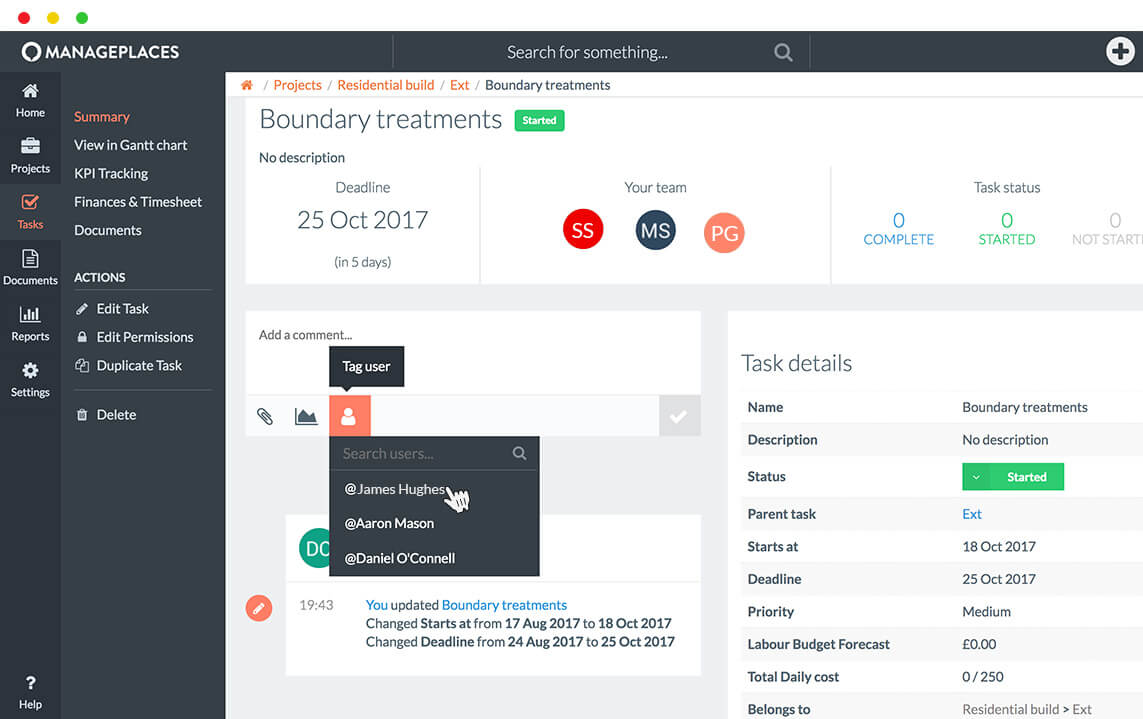Construction project management combines the expertise and skill of a manager affecting the construction industry. Since a construction project is always on the move, a construction project manager should have the experience and the proficiency to take care of different teams to meet the required objective.
This article will teach you through the basics including everything you must know about the construction project management software.
What is a construction project management software (CPM)?
Wikipedia explains project management as “the discipline of starting, planning, implementing, managing and closing the work of a team to achieve specific goals and meet specific success criteria.” This definition can be extended to construction project management in which a construction project manager makes use of a similar model to gain the same goal but in context to construction only.
Fundamentally, a construction project management system takes care of making plans, coordination and execution of a construction project and spans across different kinds such as agricultural, commercial, environmental, industrial, institutional, heavy civil and residential.
A construction project involves complex activities, and these can shift drastically as this depends on the kind of work at hand and it needs incredible expertise in communication, building process knowledge and the skill to resolve the issues at hand. Construction project management is a complicated field, and this demands knowledge in several areas such as mediation, business, finance, law and much more. A single software can take care of all of these.
Basics of Construction Project Management Software…
Construction project management software are of two types: on-premises and cloud-based
On-premises construction management software offers the user more control over the project. The software is installed on your computer or server, and you may require an IT team to manage the software.
Cloud-based construction management software can be accessed at anytime from anywhere with any device using an internet connection or web browser. This option will make it possible for you to avail the data including RFI in construction management irrespective of where you are at the moment.
Smaller construction companies prefer cloud-based software more whereas on-premises software are more popular among larger firms.
What are the prime features of construction management software?
However, construction management software presents a variety of features, and one can pick as per your construction firm’s needs. To elaborate, general contractors should buy software which is more inclined towards cost and accounting, scheduling, document management and personnel tracking. A builder would need software that presents complete features such as estimating, blueprinting, bidding capabilities, change orders, RFI, dispatching and equipment procuring.
Below are the most common features found in construction project management software:
- Project Scheduling
- Drawing and Blueprinting
- Budgeting, estimating and forecasting
- Financial reports and accounting
- Bid management, bid proposals, and bidding
- Document control
- Document management
- Equipment procuring
- Photos and multimedia
- Purchase orders
- Resource management
- Change orders
- RFI generation, monitoring, and submittals
- Dispatching and track of the location
- Email tracking and communication transmittals
- Personnel management
- Database of contractors and suppliers
- Field notes of inspection and checklists
Summing up
The correct construction management software is a vital factor that ascertains efficiency and accountability. With this article, I hope you have learned the know-how one needs to regarding the construction management software.

